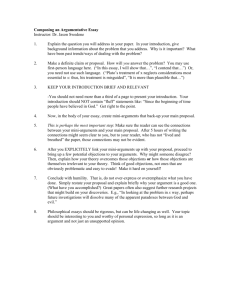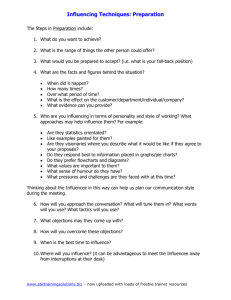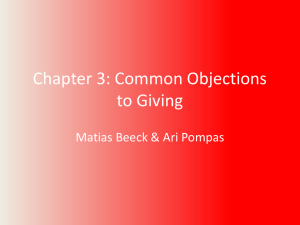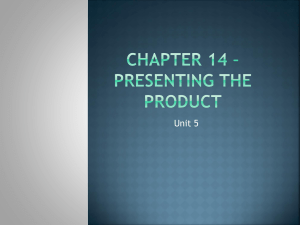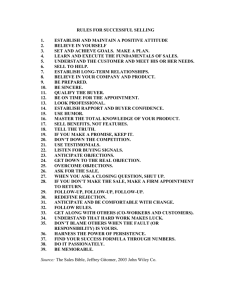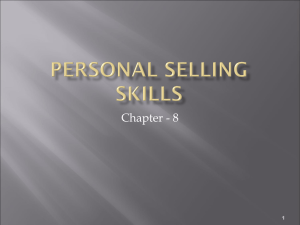The Meditations: Introduction - The Richmond Philosophy Pages
advertisement
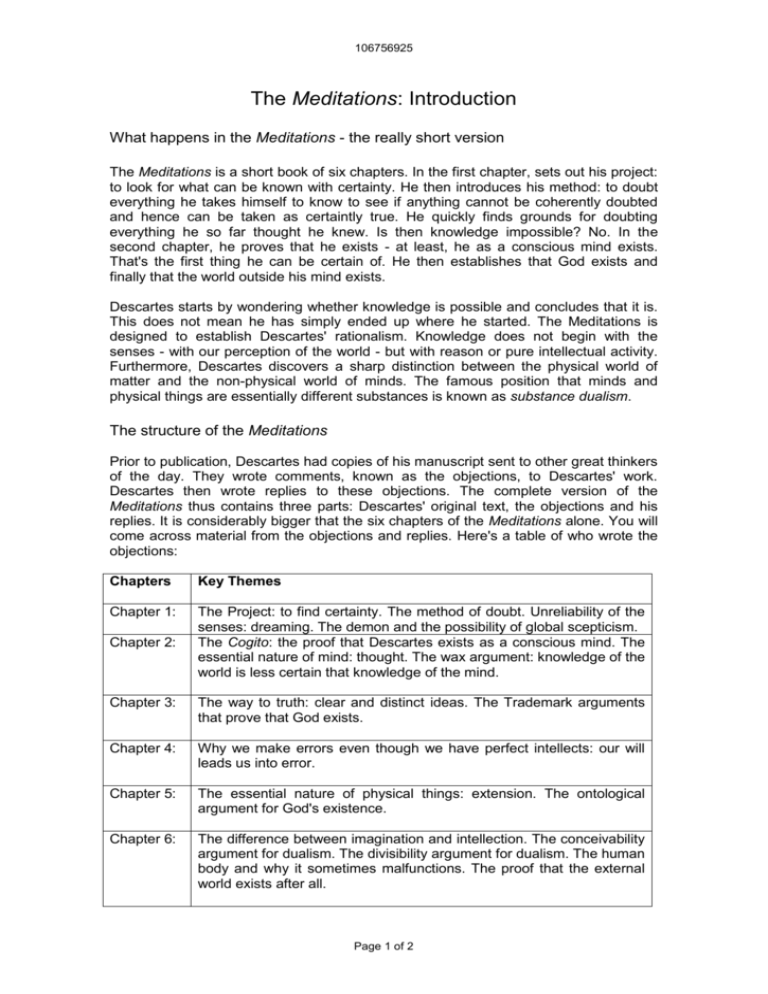
106756925 The Meditations: Introduction What happens in the Meditations - the really short version The Meditations is a short book of six chapters. In the first chapter, sets out his project: to look for what can be known with certainty. He then introduces his method: to doubt everything he takes himself to know to see if anything cannot be coherently doubted and hence can be taken as certaintly true. He quickly finds grounds for doubting everything he so far thought he knew. Is then knowledge impossible? No. In the second chapter, he proves that he exists - at least, he as a conscious mind exists. That's the first thing he can be certain of. He then establishes that God exists and finally that the world outside his mind exists. Descartes starts by wondering whether knowledge is possible and concludes that it is. This does not mean he has simply ended up where he started. The Meditations is designed to establish Descartes' rationalism. Knowledge does not begin with the senses - with our perception of the world - but with reason or pure intellectual activity. Furthermore, Descartes discovers a sharp distinction between the physical world of matter and the non-physical world of minds. The famous position that minds and physical things are essentially different substances is known as substance dualism. The structure of the Meditations Prior to publication, Descartes had copies of his manuscript sent to other great thinkers of the day. They wrote comments, known as the objections, to Descartes' work. Descartes then wrote replies to these objections. The complete version of the Meditations thus contains three parts: Descartes' original text, the objections and his replies. It is considerably bigger that the six chapters of the Meditations alone. You will come across material from the objections and replies. Here's a table of who wrote the objections: Chapters Key Themes Chapter 1: The Project: to find certainty. The method of doubt. Unreliability of the senses: dreaming. The demon and the possibility of global scepticism. The Cogito: the proof that Descartes exists as a conscious mind. The essential nature of mind: thought. The wax argument: knowledge of the world is less certain that knowledge of the mind. Chapter 2: Chapter 3: The way to truth: clear and distinct ideas. The Trademark arguments that prove that God exists. Chapter 4: Why we make errors even though we have perfect intellects: our will leads us into error. Chapter 5: The essential nature of physical things: extension. The ontological argument for God's existence. Chapter 6: The difference between imagination and intellection. The conceivability argument for dualism. The divisibility argument for dualism. The human body and why it sometimes malfunctions. The proof that the external world exists after all. Page 1 of 2 106756925 The authors of the objections: Objections 1: Caterus (Johan de Cater): a Catholic theologian from Holland Objections 2: Marin Mersenne mathematician. Objections 3: Thomas Hobbes: an English philosopher. Objections 4: Antoine Arnauld: a French theologian and logician. Objections 5: Pierre Gassendi: a French philosopher and scientist. Objections 6: 'various theologians and philosophers' according to the original text, compiled by Mersenne. Objections 7: Pierre Bourdin: a French Jesuit philosopher. (largely): Page 2 of 2 a French theologican and

